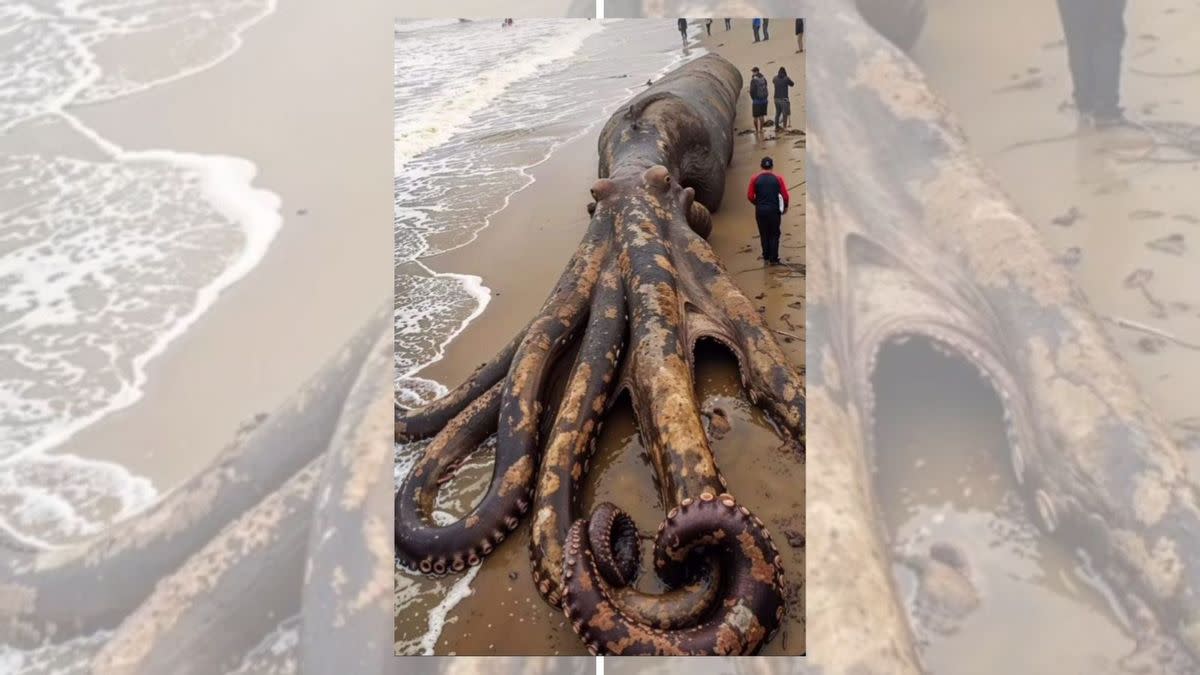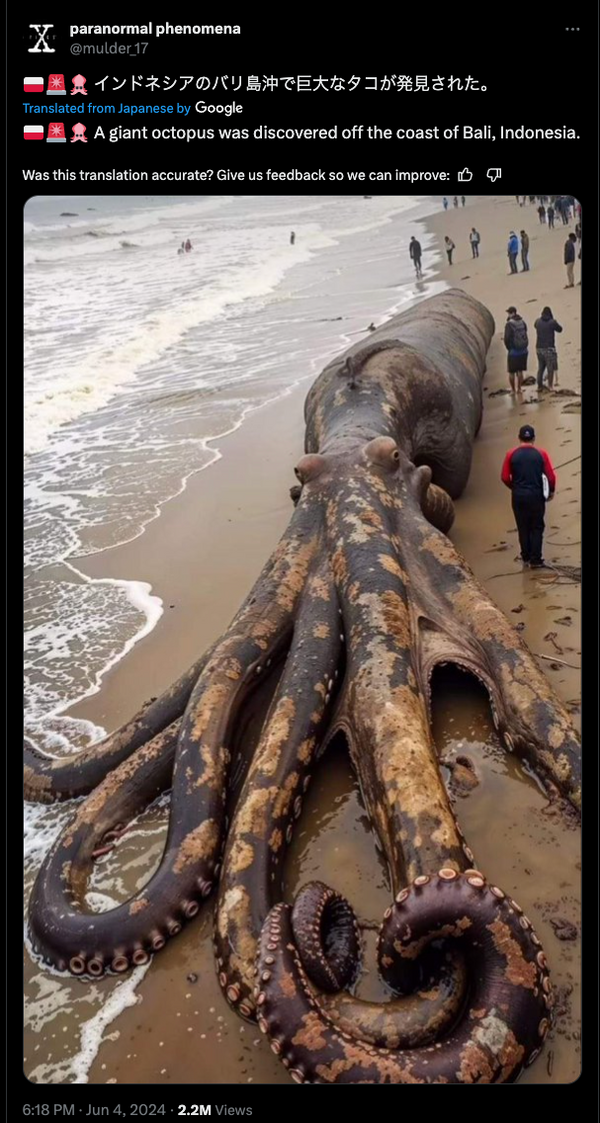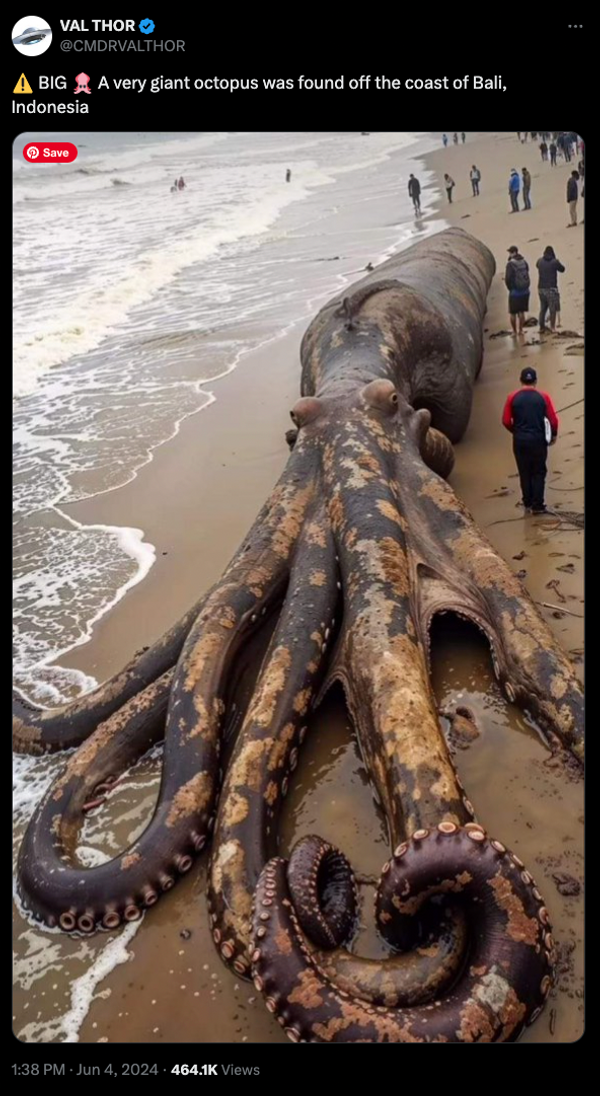Fact Check: Photo Purports To Show Giant Octopus Washed Up on Indonesian Coast. Here's What We Learned

Claim:
An authentic photograph shows the body of a massive octopus washed up on the coast of Indonesia.
Rating:
Context:
The image was generated by artificial intelligence (AI).
On June 4, 2024, a purported photograph of a giant octopus washed up on a beach went viral. Many posts on X claimed the image was taken in Bali, Indonesia.
The image in question showed five visible tentacles and the body of the octopus, with local beachgoers standing around it and more bystanders in the distance.

(X user @mulder_17)

(X user @CMDRVALTHOR)
The photograph is fake and generated by artificial intelligence (AI).
Using Google's reverse-image search tool, we found no authentic source for the above image. Nor did we find any news outlets reporting on it, or any photographer claiming to have taken this picture.
We did, however, find the image shared on Instagram by best_of_ai_, a self-described "Digital Creator" who experiments "with different ai engines, themes and styles." This was the earliest example of the image that we could find, four days before it went viral on X. The image was shared within a video that purported to show the so-called octopus from different angles on the beach.
https://www.instagram.com/p/C7rqkAAoqaT/
We contacted the Instagram user to determine if they were the original creator of this image, and will update this post if we learn more.
The image caption identified it as a "fictional" creation and titled it as "The Mourning of the Abyssal Titans":
In the quiet hours before dawn, the world's beaches trembled. The waves whispered secrets, and the sands shifted uneasily. The enormous octopus, its eyes like ancient moons, emerged from the depths—a titan awakened.
Its tentacles, thick as ship masts, reached for the shore. Dead creatures clung to its suckers: bloated fish, forgotten sailors, and lost treasures. The sun rose, casting a sepulchral glow upon the beast.
Tourists fled, their sun hats abandoned. Lifeguards blew whistles, but their warnings were futile. The octopus pulled up more corpses—seagulls, crabs, and driftwood. The beaches became a graveyard.
Scientists arrived, cameras clicking. They measured the creature's span: nine meters, a record-breaking giant. The world watched in awe and horror as the octopus mourned its fallen kin.
Beachgoers wept, their toes touching the cold, lifeless bodies. Children built sandcastles atop whale bones. And the octopus, its eyes haunted, retreated back to the abyss.
The tides whispered its lament: "Weep not for the dead, but for the forgotten. For we all return to the sea, whether by storm or by choice." And so, the beaches bore witness to the sorrow of ancient depths. 🌊🐙This is a fictional story
The Instagram account displays a range of AI-generated images that are clearly not real.
Had the image been of a genuine octopus of that size, it would certainly have been covered in environmental news stories and had a verifiable source.
Sources:
Evon, Dan. "Snopes Tips: A Guide To Performing Reverse Image Searches." Snopes, 22 Mar. 2022, https://www.snopes.com//articles/400681/how-to-perform-reverse-image-searches/. Accessed 5 June 2024.

 Yahoo News
Yahoo News 

